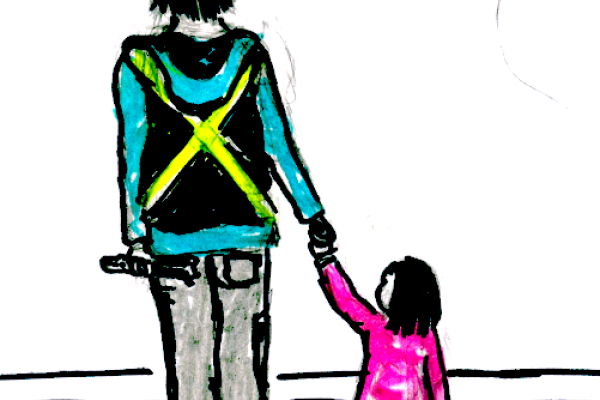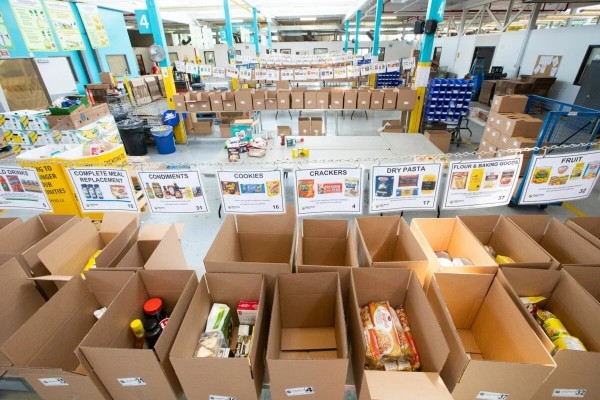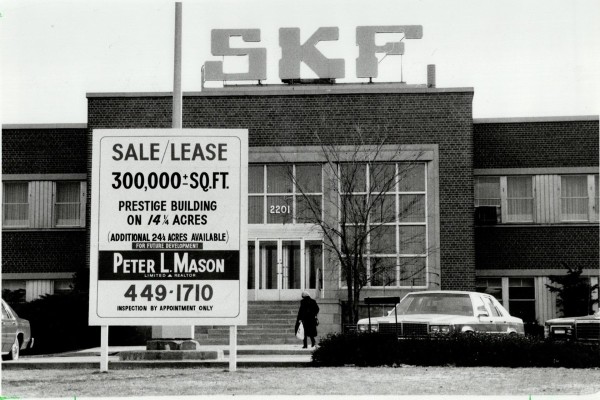-

Public sector pensions and the private to public pivot
The following is an excerpt from Invested in Crisis: Public Sector Pensions Against the Future by Tom Fraser. Fraser traces the rise of the province’s pension funds by melding history, geography, and political economy to situate this growth in the context of Ontario’s deindustrialization, the rise of finance, and the global politics of the built environment.
-

Canada’s job market is worse than you think
A weak labour market is always bad for workers. But it is an even bigger problem as we deal with Trump’s attacks on Canada’s economy. Canada’s current unemployment rate is 6.6 percent, down from a recent high of 6.9 percent. However, it is well above the 4.8 percent achieved in 2022, or even the 5.5 percent reached in 2019.
-

On life as a single mom working in the construction industry
In that time of morning that seems like the dead of night, I quietly get dressed. My six-year-old stirs and I ask her to climb onto my back like a tiny monkey. I leave my apartment unit and carry her downstairs to another unit where my neighbour is waiting. It’s so early and I’m so tired and my day has just begun. Who was this system designed for, and who is it working for?
-

Bob Rae’s NDP and the fight to pass an anti-scab law
The following is an excerpt from The Left in Power: Bob Rae’s NDP and the Working Class by Concordia University professor Steven High. Based on extensive archival research and interviews, the book revisits the heartbreaking years of Bob Rae’s Ontario NDP government to uncover what we can learn from one social democratic party’s mistakes about how to govern from the left.
-

Sawmilling turncoats
Canada currently fulfills around 25 percent of American lumber demand, a drop from 35 percent in the 1990s. That number shrinks every time a Canadian sawmill gets dismantled and shipped to the US. It gets smaller every time a Canadian company transfers its made-in-Canada technology, financial earnings, and supermill know-how down south, too.
-

The attack on democratic rights
As we see in the case of ongoing efforts to criminalize disruptive forms of climate protests, establishment thinking is embracing the idea that stricter limits must be set on the freedoms that have been conceded by liberal democracies. You can object to the destructive conduct of fossil fuel companies, but if you challenge their operations you will be treated as a terrorist.
-

Hard times are here
People like me and my family members who work in the construction and restaurant industries are canaries in the coal mine of the economy. New condo starts have been down for some time, which is an early indicator of a real estate slump—but rents remain high. Recession is here already, for some folks. Like me. What are we going to do about it?
-

Now is the time to turn the tide on the deindustrialization of Canada
The rise of the populist right in deindustrialized areas, like the US Rust Belt, is a legacy of neoliberalism and free trade. We need to break this cycle. If we want to turn the tide of deindustrialization and create manufacturing jobs for the economy of the future, we need to be bold. And it starts now, not in some distant future.
-

Building self-reliance: the alternative to free trade
In order to achieve self-reliance several complementary, integrated components must be pursued. At the centre is an industrial strategy, which should be accompanied by appropriate monetary policy, regional development, fiscal policy, social policy, technological innovation, property ownership and control over investment, and international relations.
-
_800_600_90_600_400_90_s_c1.jpg)
Amazon closures an act of economic terrorism
Terrorism is defined as an act of violence, usually harming innocents, that is motivated by a political or ideological goal. By that standard, write economist Jim Stanford, Amazon’s decision to shut all seven of its warehouses (euphemistically called ‘fulfilment centres’) in Québec, to avoid unionization at one of those warehouses, is an act of economic terrorism.



